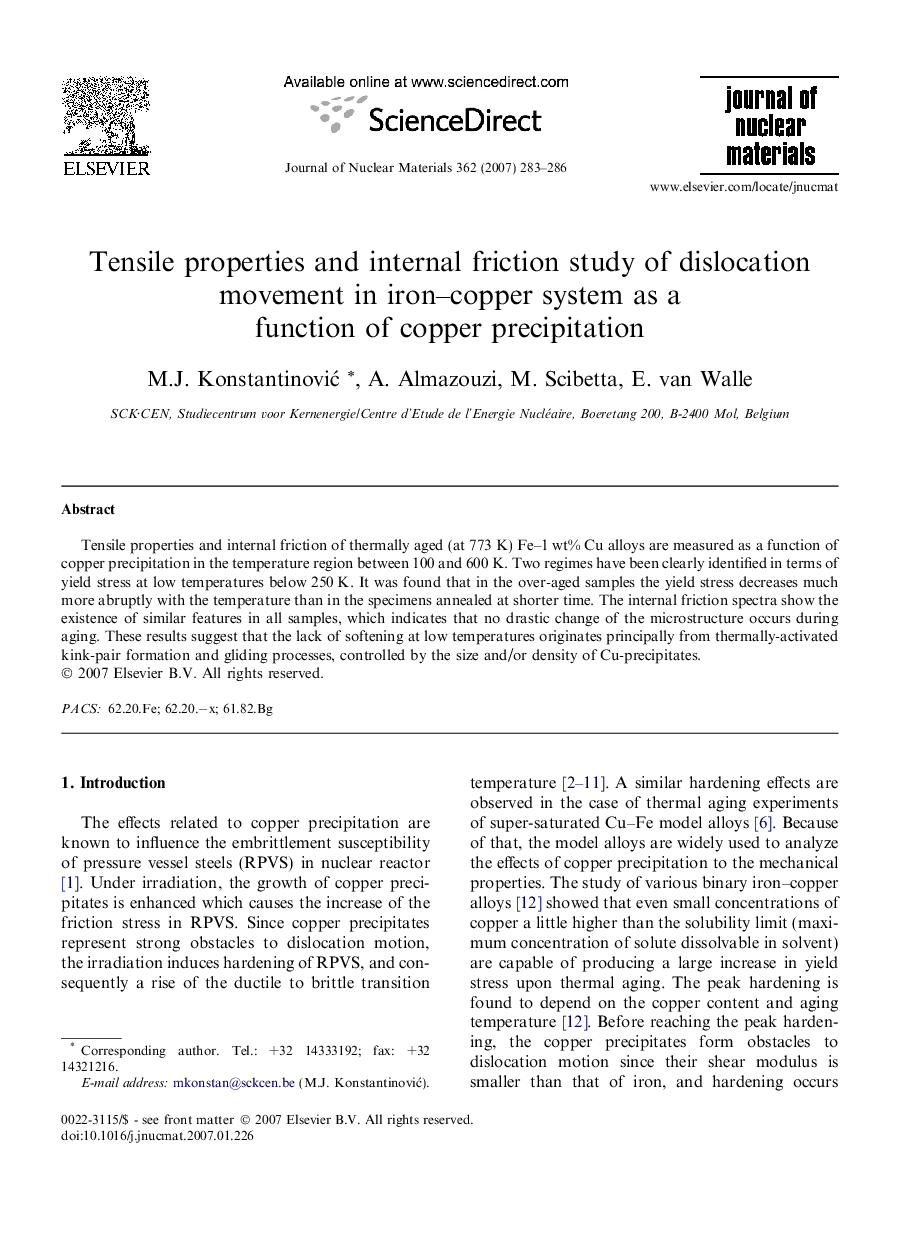| Article ID | Journal | Published Year | Pages | File Type |
|---|---|---|---|---|
| 1569490 | Journal of Nuclear Materials | 2007 | 4 Pages |
Tensile properties and internal friction of thermally aged (at 773 K) Fe–1 wt% Cu alloys are measured as a function of copper precipitation in the temperature region between 100 and 600 K. Two regimes have been clearly identified in terms of yield stress at low temperatures below 250 K. It was found that in the over-aged samples the yield stress decreases much more abruptly with the temperature than in the specimens annealed at shorter time. The internal friction spectra show the existence of similar features in all samples, which indicates that no drastic change of the microstructure occurs during aging. These results suggest that the lack of softening at low temperatures originates principally from thermally-activated kink-pair formation and gliding processes, controlled by the size and/or density of Cu-precipitates.
